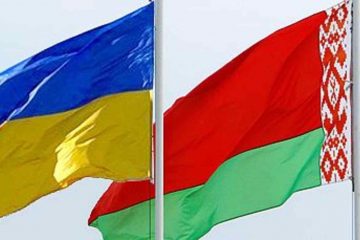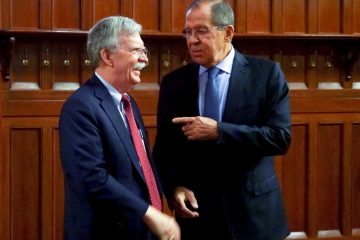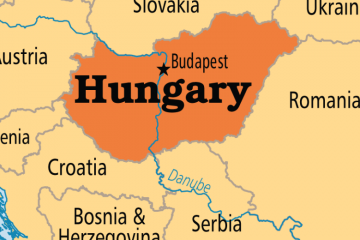Angela Merkel and François Hollande met Vladimir Putin in the Kremlin on Friday night in an attempt to prevent a major escalation in the Ukraine conflict, as Washington weighed Kiev demands for arms supplies.
Talks got under way after 7pm local time after Merkel and Hollande touched down at Vnukovo airport significantly later than scheduled and were whisked to the Kremlin.
Putin’s spokesman Dmitry Peskov said the talks involved the three leaders alone around a table, without the presence of delegations, aides or experts.
Despite the late start, there seemed little chance of the talks going to a second day, as Putin’s press service announced that the Russian president would spend Saturday in Sochi attending an “anniversary ice show” to celebrate one year since the start of the Winter Olympics.
As the day went on it became increasingly clear that Merkel and Hollande had come to Moscow not with a comprehensive plan but rather a response to proposals Putin had sent them in letters earlier in the week, in which he envisaged an expansion of territory left under rebel control.
The Ukrainian government, however, is insisting that any new ceasefire agreement should be based on the frontlines Russia agreed to in a truce brokered in Minsk last September.
Merkel and Hollande met Ukraine’s president, Petro Poroshenko, in Kiev on Thursday evening on their way to Moscow, and promised him that any new peace deal would involve guarantees of Ukraine’s territorial integrity.
The Moscow talks took place amid rising fears of an escalation in the fighting. A battle around the eastern Ukrainian town of Debaltseve, a strategically important railway junction held by the Ukrainian army but surrounded on three sides by separatist forces, was paused to allow civilians to leave by bus.
Advertisement
On the ground, the ceasefire appeared to hold. The town, once of 20,000 people, has been the main target of a bloody rebel push in recent weeks, leaving dozens of soldiers and civilians dead. Civilians were given a choice of whether they wanted to evacuate to Ukrainian-held or rebel-held areas.
There seemed little doubt that the separatists would press their offensive after the civilians left. According to Kiev and western capitals, the new offensive is being fuelled by Russian arms supplies and manpower.
The Ukrainian government is appealing for western weapons to help it hold off the assault. “The peace in Europe depends on peace in Ukraine. And to get peace, Ukraine needs to have a capacity to defend itself,” Arseniy Yatsenyuk, the Ukrainian prime minister, said in a tweet.
The US secretary of state, John Kerry, has said Washington is weighing up whether to supply arms to the Ukrainian government, but the suggestion has met strong opposition from some western Europe governments, led by Germany.
“Focusing merely on weapons could add fuel to the conflict and rather lead us away from a desired solution,” the German defence minister, Ursula von der Leyen, said at a security conference in Munich on Friday. “There are already far too many weapons in Ukraine. Supply to the separatists is potentially unlimited.”
Von der Leyen argued that it would be smarter for western countries not to copy Moscow’s tactics by sending weapons, but to use economic sanctions to inflict damage on the Putin regime.
After Hollande and Merkel left Kiev, Ukraine’s foreign minister, Pavlo Klimkin, said on Twitter that the leaders had discussed “steps so that the Minsk agreement can start working”. The Minsk ceasefire in September froze the frontlines at their positions at the time, but never held.
Kerry sounded lukewarm about Merkel and Hollande’s visit. He said Putin had sent “a couple of ideas” to France and Germany, and the pair had come up with a response, but he did not give details. Kerry also said the US wanted a diplomatic solution but was reviewing all options, including “the possibility of providing defensive systems to Ukraine”.
US officials are concerned that Putin will use European eagerness to stop the fighting to consolidate his hold on Crimea and eastern Ukraine and shrug off the obligations Russia undertook in Minsk to cut off the flow of arms and manpower to the pro-Moscow separatists.
Hollande, however, insisted that the Franco-German proposals were based on a guarantee of Ukraine’s territorial integrity. He said: “The diplomatic option cannot be extended indefinitely.”
The chances of a breakthrough hinge on establishing a durable ceasefire, and the prospect of that looked slim, according to senior officials and diplomats briefed on the initiative in Brussels.
Putin was said to be refusing to negotiate with Poroshenko, after making fresh proposals to Kiev 48 hours ago. While senior officials in Brussels said the new initiatives in the Putin plan were worth exploring, the little that was known suggested they would be very hard for Kiev to swallow.
Putin wants to redraw the “demarcation line” showing pro-Russia rebel-held territory, expanding it by around 500 sq km from that agreed last September in Minsk. Merkel has always insisted that the Minsk deal is the only basis for a settlement.
While seizing a bigger chunk of eastern Ukraine, Putin also insisted that the “autonomous” areas beyond the control of the Ukrainian government nevertheless continue to benefit from central government budget funding.
This would mean that Kiev was paying for the partition of the country and financing what would probably become a frozen conflict perpetuating Russian and separatist control of the region.
“Putin wants to create a fait accompli and create a new demarcation line,” said a senior diplomat.
A senior official involved in the talks said Putin’s offer was pointless and would not be accepted. But three senior figures in Brussels said changes could be made to the Minsk accords depending on what Putin offered in return.
Merkel and Hollande were expected to warn Putin that in the absence of any diplomatic breakthrough, the pressure to supply arms to the Ukrainians could become irresistible and that talk of eventual admission of Ukraine to Nato would move up the agenda.
The Europeans are almost unanimously opposed to arming the Ukrainians, although Lithuania is already making deliveries. “If we prepare the other side for war, there will be a war and Putin will win that war. That’s the majority view in Europe,” said the diplomat.
Before of an international security conference in Munich on Friday, the veteran German diplomat Wolfgang Ischinger said the Merkel-Hollande gambit was “probably a last chance”.
A senior British army officer has urged the British government to support the establishment of a conventional deterrent against Russian forces.
General Sir Richard Shirreff, who was the leading British commander in Nato until last March, told BBC Radio 4’s Today programme that a strong message needed to be sent to the Russian president if mainland Europe was to avoid “total war”.
“Unless Nato speaks from a position of strength, we are gifting the advantage to Mr Putin,” Shirreff said. “Wars start as a result of weakness, not of strength. That dynamic once started gets worse if there is a sense of weakness on one side.”





Comments